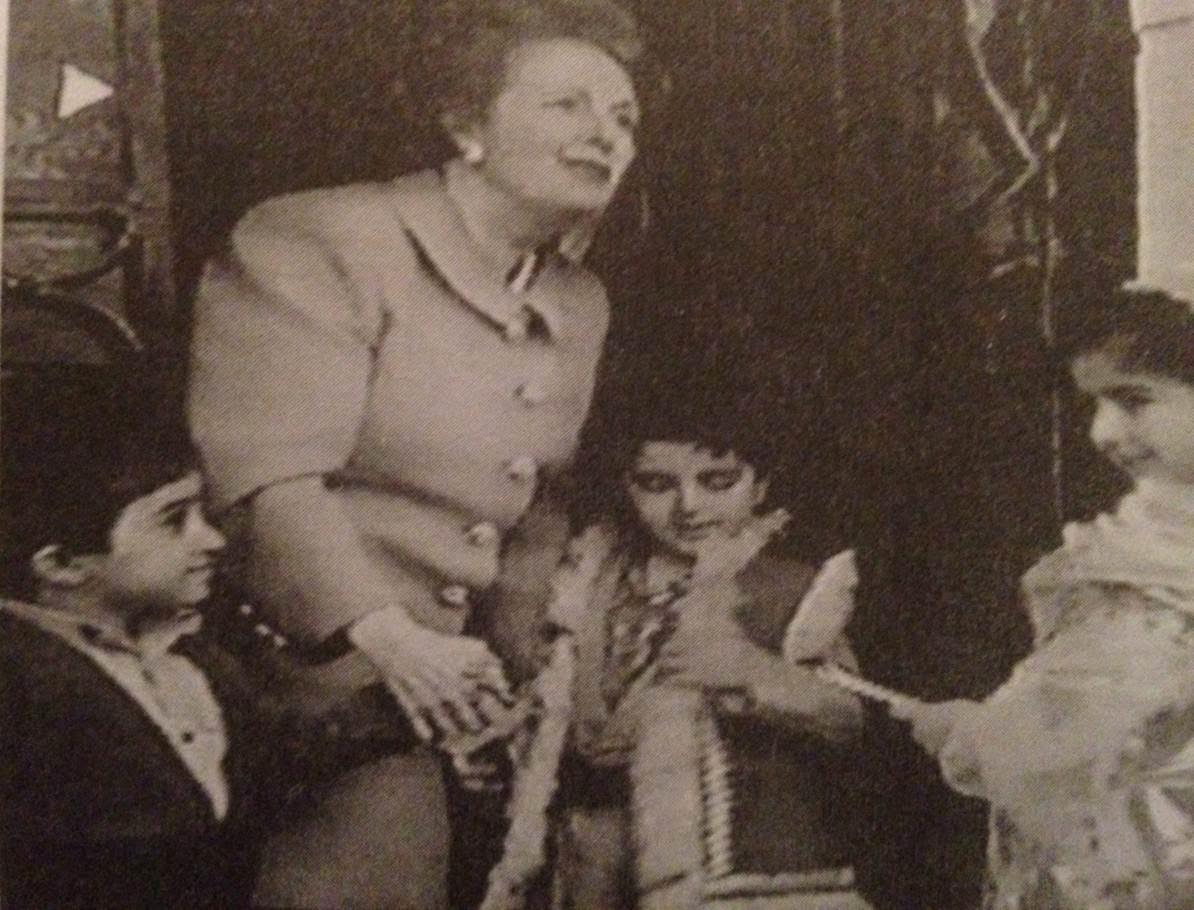Cameron needs to lead like Thatcher did in Syria
In the 90s Thatcher and Major took strong decisions in order to save Iraqi Kurds from Saddam Hussein; Cameron must do the same in Syria. He must avoid a power vacuum after air strikes

Your support helps us to tell the story
From reproductive rights to climate change to Big Tech, The Independent is on the ground when the story is developing. Whether it's investigating the financials of Elon Musk's pro-Trump PAC or producing our latest documentary, 'The A Word', which shines a light on the American women fighting for reproductive rights, we know how important it is to parse out the facts from the messaging.
At such a critical moment in US history, we need reporters on the ground. Your donation allows us to keep sending journalists to speak to both sides of the story.
The Independent is trusted by Americans across the entire political spectrum. And unlike many other quality news outlets, we choose not to lock Americans out of our reporting and analysis with paywalls. We believe quality journalism should be available to everyone, paid for by those who can afford it.
Your support makes all the difference.I visited former Prime Minister Margaret Thatcher’s home when I was five years old with other members of the Kurdish community in London to present the case for supporting the Kurds. Soon after, Thatcher asserted that “It should not be beyond the wit of man to get planes there with tents, with food, and with warm blankets...We should go now - it is a real mercy mission."
Around the same time, the newly elected Prime Minister, John Major, went on to authorize a no-fly zone to protect the Kurds in northern Iraq after Saddam’s occupation of Kuwait was ended by a UN-sanctioned military campaign. The Butcher of Baghdad, defeated and bankrupt, focused his attention on the Kurds, against whom he had already used chemical weapons in a campaign that killed more than a 100,000 Kurdish civilians.
This measure prevented Saddam’s tanks and gunships from exterminating the Kurds. The UK went one step further and put forward plans to establish a safe-haven in northern Iraq. The plan faced intense opposition from the US but not long after our meeting with Thatcher, whose intervention added important momentum to the campaign, the Major government’s resolve paved the way and forced the US into action.
To this day, Kurds highlight how Major’s government came to their assistance during their darkest hour. Cameron can draw inspiration from the leadership the Conservative-led government exercised to protect Iraq’s Kurds in 1991 in his current battle against Isis.
Cameron’s current strategy is a step in the right-direction. Intensifying the campaign against Isis is a must if the jihadists are to be defeated and this requires targeting Isis in Iraq and Syria since it utilises the territory and resources from both countries.
But it should not end there. Cameron should not simply bomb Isis as part of the momentum that has been generated since the atrocities in Paris but, rather, take the lead on bringing peace and stability to Syria. It requires adopting a proactive, rather than simply a reactive approach that has so far ensured Isis is always one step ahead.
Cameron should look to Thatcher and Major for inspiration and take the lead on stabilising the conflict in Syria. He should not rely on belligerents to bring peace and stability.
This includes the vast array of rebel forces, the most powerful and organised of which are hardline Islamists no different to Isis. These jihadists are backed by regional actors like Saudi Arabia, Turkey and the Gulf. It also means not leaving responsibility for stability to the Assad regime and his Russian and Iranian patrons. Their involvement in the conflict has taken us to where we are today.
Turkey is also bombing Kurds in Syria, targeting a key Western ally while escalating its indiscriminate military attacks on Turkey’s Kurds, as part of its broader campaign to repress the Kurdistan Workers’ Party (PKK), which seeks rights for Turkey’s marginalised and historically oppressed Kurds. It would be a mistake to let them take the reins.
The intervention should be the start of a sustained military and humanitarian campaign. Fundamentally for any engagement in Syria and the rest of the region to count, it is necessary to fill the void that has been created as a result of cautious leadership in both Europe and the US.
Filling the leadership void on the global stage could capitalise on the momentum that now exists in favour of confronting Isis, alleviating the humanitarian crisis and bringing peace and stability to Syria. In doing so Cameron would carry the legacy of Thatcher and Major by upholding British values in a time of global crisis. But if he fails, there are enough unhelpful actors determined to continue as they have been, to the detriment of our own national security and that of the international community’s as a whole.
Join our commenting forum
Join thought-provoking conversations, follow other Independent readers and see their replies
Comments